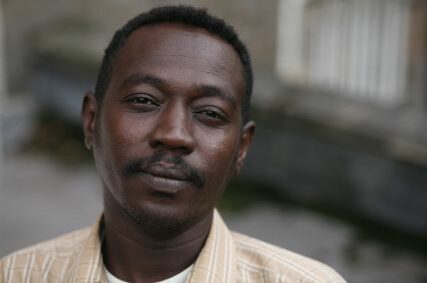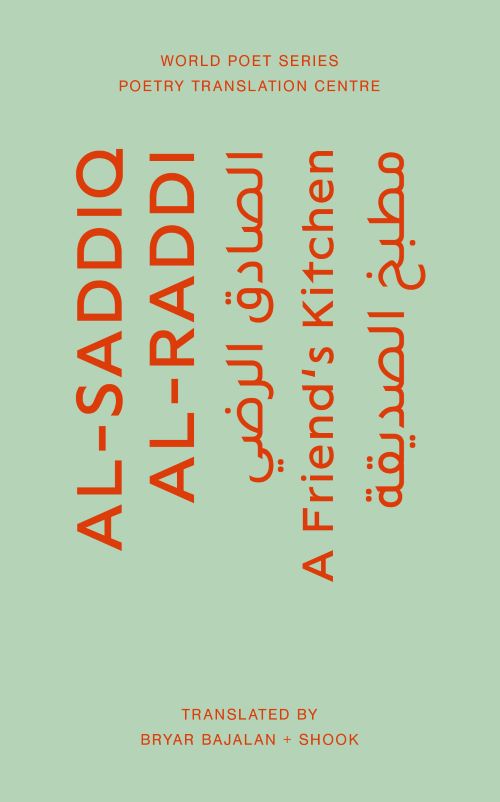1
I spent twenty-five years in exile’s bar, all in cash
Examining time’s skull on a rusty table
The saxophone screeched at me from eternity’s throat
From an old regret I’ve challenged to a race
For screeching my wasted day:
What is exile?!
2
In the past:
A house of mud — the smell of tobacco permitting the morning to rise —
A cup of tea, the neighbours’s chatter and the newspaper
Raising hope on the mast of determination
Forgetting yesterday’s massacre
Simmering our separation or anticipating a new day.
*
Bureaucracy ruined your day
Your capital is time in the landfill
3
A fifth drink or five in the morning
My companion in the hotel room
Devours time
You don’t grasp for the cup but bow your head in respect
Nor do you grasp for a kiss with an empty cup
Between me and the cigarette something comes to mind
Between the cigarette and the bedcover something that wouldn’t occur to you
But the morning emerges
Between the sign and its name
Or between the pillows and their cotton
The sun goes down but yesterday has yet to set
4
Exile is a void — I remember its ecstasy when I make my home
Or when the only thing to make its home is the taste of remembrance
I remember the names of those who departed, one by one
I was one of them
I remember the names of those who were buried
I remember your name or the names of those yet to be born
This was exile
With its countless nights
5
You need roots to establish yourself in the soil
Esoteric knowledge of petrology and the taxonomy of plants
Reptilian species and the nature of the seasons
The phyla of birds, etc.
You need so much to be someone else
أوراق اللجوءْ
1
خمسة وعشرون عاماً أَنْفَقتُها نَقْدَاً في حانة المنفى
أَدرسُ جمجمةَ الوقتِ على طاولةٍ صدئةٍ
هتف لي عنصرُ الساكسفون من حنجرةِ الأبديةْ
من ندمٍ أَسْبُقُ
هتفت بي خسارةُ اليومْ
ما المنفى؟!
2
السابقُ بيتُ الطِّينِ، رائحةُ التَّبغِ تأذنُ للصباحِ أن يطلَّ
كوبُ الشايِّ، لغو الجيرانِ والصحيفةْ
نَصبُ الأملِ على ساريةِ العَزْمِ
نسيانُ مجزرةَ الأَمْسِ
طهو المسافاتِ أو توقُّع يومٍ جديدْ
*
النِّظامُ أتلفَ يومَكَ
رأسُمَالَكُ وقتٌ على مقلبِ النفاياتْ
3
الكأسُ الخامسةُ أو الخامسةُ صباحاً
في غرفةِ الفندقِ
ثمة مَنْ تشربُ الوقتَ
لا تَعْبُرُ الكأسَ حاسرةَ الرأسِ
أو تَعْبُرُ القُبْلَةَ فارغةَ الكأسِ
بيني وبين السجارة ثمة ما يخطرُ على البال
بينها وغطاء السرير ما لا يخطرُ على البال
بيدَ أن الصباحَ يُطلُّ
بين الإشارةِ واسمها
أو بين الوسائدِ والقطن
تمرقُ الشمسُ ولا يغربُ الأمسُ
4
المنفى جَوَّافَةٌ أتذكرُ نشوتَها حين أسكنُ
أو حين لا يسكنُ إلاِّ مذاقُ التذُّكرِ
أذكرُ أسماءَ من غادروا واحداً- واحدةً
كنتُ واحدهمْ
أذكرُ أسماءَ من قُبِروا
أذكرُ اسمكِ أو اسمَ من يُولدُ
كان منفى
ولياليكِ بلا حسابْ
5
تحتاجُ إلى جِذْرٍ لتَسْكُنَ التُرْبَةَ
معرفةً باطنيّةً بأُمَمِ الحَجَرِ وفصائلَ النَبَاتِ
بخصائصِ الفصولِ وأنواع الزَّواحفِ
بشعوبِ الطِّيرِ..إلخ.
تحتاجُ الكثيرَ لتكونَ غَيركْ!






